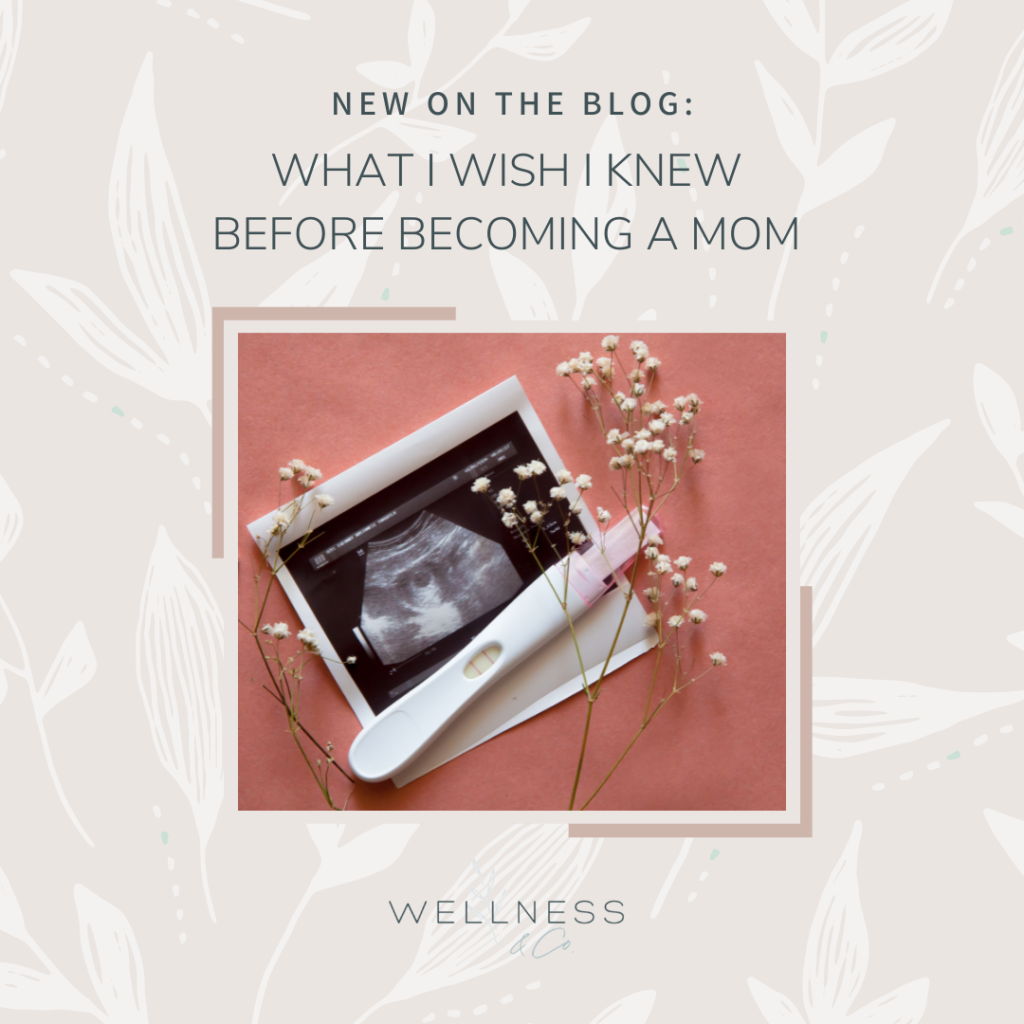Follow
Wellness & Co.
Hi, I'm Dr. K, Wellness & Co. is a growing therapy/coaching practice and educational hub for prospective clients based in Maryland and virtual clients all over the world!
Hi, I'm Dr. K
free guide
e -books
e -course
What I Wish I Knew Before Becoming A Mom
May 10, 2022

Have you ever felt like parts of motherhood were not what you expected it to be? When I was pregnant with my son, I did everything I thought was necessary to prepare for his arrival. I researched the safest baby equipment, signed up for newborn classes, and read a ton of books. What I did not prepare for was the intense and conflicting emotions that come with the transition to motherhood. As a new mom, I felt blind-sided. There’s so much to motherhood that’s unseen and not talked about enough. Here’s what I wish I’d known:
Just after birth: there isn’t always an instant burst of love and that’s okay.
I’ll admit I watched too many labor & delivery videos during my pregnancy. Admittedly, I cried watching those moments when a mother meets her baby for the first time after giving birth. Now, imagine my surprise when I didn’t cry at all after having my own baby. I was shocked by my feelings and felt so confused that I was not “instantly in love”. What I learned is so many mothers report feeling indifferent when they first hold their baby. This is especially true for mama’s who have experienced a traumatic or difficult birth. The assumption that meeting your baby will be love at first sight is true for some but, not for all, and that’s okay.
A postpartum support plan is equally as important as a birth plan.
The postpartum period is marked by major changes in the body like hormone changes, physical recovery, and complete exhaustion. Not to mention having a whole human to take care of now. With all of these drastic changes happening at once, it can be difficult to know what you need and how to ask for it. This is when I learned that a postpartum plan is equally important as a birth plan. Ideally, a postpartum plan is created before the baby comes. Usually with a trusted partner, friend, or family member who makes sure your wishes are communicated to those around you. A postpartum plan is a practical tool to prioritize YOU, because your needs matter.

You are learning how to be a mother.
There’s often the advice; “Don’t worry your motherly instincts will kick in”. This advice, while well-intentioned, creates unrealistic expectations and minimizes the learning curve that every new mother goes through. What I learned is that becoming a mother is a journey and a skill. It takes time, trial & error, and patience, to figure out what works for you & your family. If you have created a loving, safe, and secure environment, then that’s what is most important for your little one. Those motherly instincts will come with time as you learn your baby. There’s beauty in learning to be a mother.
To start practicing self-compassion and know when to seek professional help.
Mama’s, we can be hard on ourselves. What I found to be so helpful in my work with moms, is to acknowledge when shame, doubt, or guilt arises; then overcome it with self-compassion. We move towards those emotions instead of ignoring them. We embrace it and make meaning of what’s going on through a lens of curiosity and nonjudgement. Self-compassion is giving the same love and kindness we give to our babies to ourselves.
If you’re pregnant or postpartum and struggling with some anxiety or depression; reaching out to a therapist trained in perinatal mental health can help! The ups and downs of motherhood are so real and reaching out for help doesn’t make you weak, it makes you human. There are many resources available for mama’s to thrive in motherhood!
–Brittany
If you are looking to heal and grow in your motherhood journey, I can partner with you for one on one therapy support. I have a background working with families and speciality training in maternal mental health. Simply CLICK to schedule your free consult with me.
Brittany’s specialty and passion is rooted in pregnancy, postpartum, and perinatal mental health. She aims to help parents reach mental and emotional wellness; while navigating the daily demands of the parenting journey – one of life’s biggest transitions. She loves supporting her clients to overcome stuck areas in their lives and grow into the person they were always meant to be.
Leave a Reply Cancel reply
CONTACT
Start Here
BLOG
OUR TEAM
SHOP
ABOUT
©2025 Wellness & Co. | All Rights Reserved | Design by EverMint Design Studio
BACK TO TOP
connect with us on instagram
